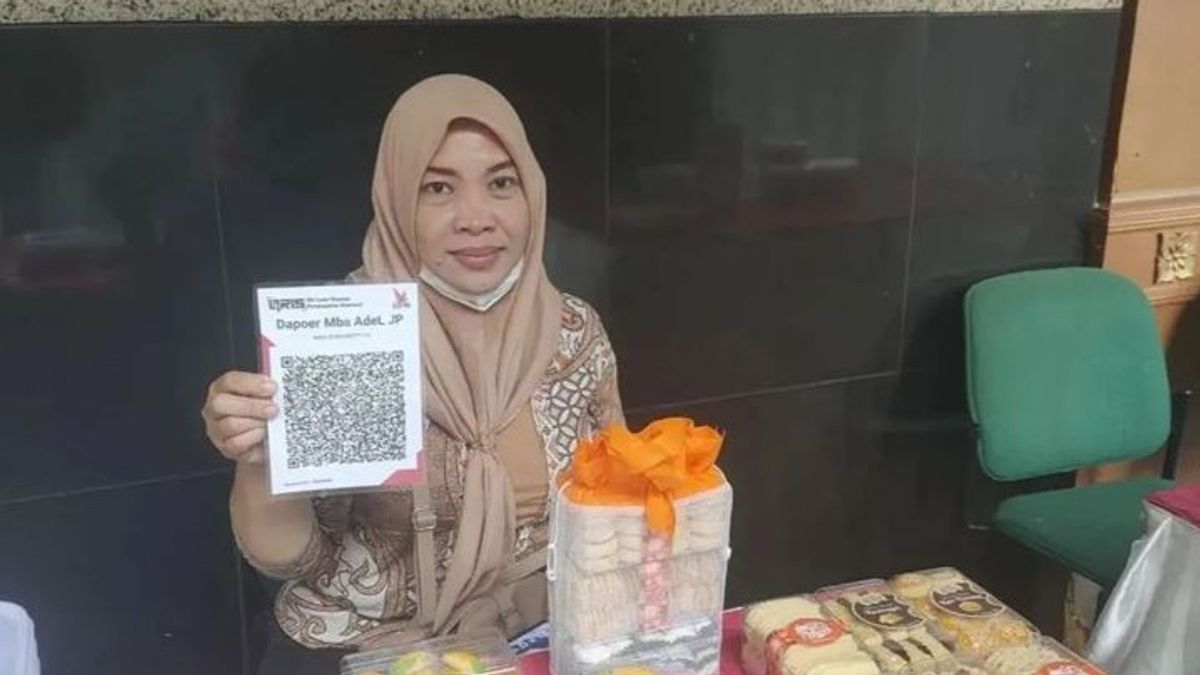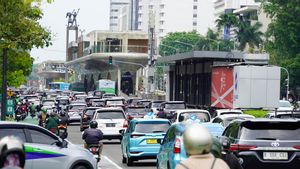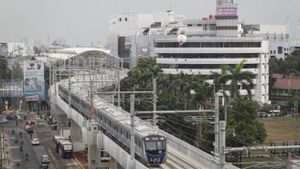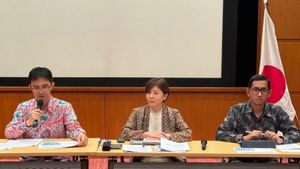JAKARTA The public's rejection of the Value Added Tax (VAT) policy to 12 percent starting January 1, 2025 is still rolling. One of the things that has been widely discussed lately is transactions through the Quick Response Code Indonesia Standard or QRIS service which is reportedly subject to VAT.
Many people protest the news of the imposition of 12 percent VAT through QRIS. The reason is, the method of paying cashless or without cash, one of which is with QRIS becoming the prima donna in the past few years.
The public's concerns regarding this issue are trying to be straightened out by the Directorate General of Taxes at the Ministry of Finance, who emphasized that VAT on QRIS service services is borne by outlet owners or merchants.
However, economic observer Fithra Faisal Hastiadi said the government owed an explanation to the public so that there would be no noise about QRIS transactions reportedly subject to 12 percent VAT.
If this issue is allowed there are concerns that the public will stop using QRIS as a transaction tool, even though since the last five years QRIS users have continued to increase.
QRIS is a payment media between merchants (sellers) andcustomers (buyers) according to the value of trading transactions, leveraging financial technology (fintech).
Head of the Fiscal Policy Agency of the Ministry of Finance (Kemenkeu) Febrio Kacaribu responded to the news regarding the impact of adjusting VAT 12 percent. Especially for buying and selling transactions of people who use QRIS.
The QRIS payment system is known to have started to be developed since 2019. Bank Indonesia officially launched QRIS on August 17, 2019 after conducting a series of trials and evaluations and effective from January 1, 2020.
According to BI records, QRIS users rose to 54.1 million with 34.7 million merchants. In addition, the transaction value in October 2024 also grew 183.9 percent on an annual basis (year on year / yoy).
In the midst of public commotion, the Head of the Fiscal Policy Agency of the Ministry of Finance (Kemenkeu) Febrio Kacaribu responded to reports regarding the impact of the 12 percent VAT adjustment, especially transactions using QRIS.
According to Febrio, transactions through QRIS and the like do not cause additional VAT burdens for buyers.
"VAT is indeed imposed on transactions that utilize fintech, one of which QRIS. However, the burden of VAT on transactions via QRIS is fully borne by merchants," said Febrio.
Director of Economic Digital Center of Economic and Law Studies (CELIOS) Nailul Huda said the same thing. When viewed from the transaction, said Huda, this QRIS is not directly imposed by the government to end consumers, but rather its merchants at the Merchant Discount Rate (MDR).
This means that the VAT tariff on QRIS transactions is not borne by consumers as has been misunderstood by the public, but will be borne by merchants.
The services are subject to MDR for certain transactions. They are taxed for their MDR and charged to the seller (mechant). So what is charged with VAT rates is the MDR tariff. Now, the MDR is calculated from the nominal transaction," said Huda when contacted by VOI.
For information, the MDR QRIS fee imposed on merchants for transactions above Rp. 500,000 is 0.3 percent. Meanwhile, transactions below Rp. 500,000 are free of charge.
For example, if an individual spends Rp1,000.00 using QRIS, the merchants will be charged 0.3 percent of the MDR, which is Rp. 3,000. The 12 percent VAT fee in question is from the cost of the MDR, in example, this case is Rp. 3,000. So, the additional VAT is Rp. 360.
However, Nailul Huda added that as when the MDR was set by the government, in the end, the merchants gave a 12 percent VAT consumer for this QRIS MDR. The trick is to increase the selling price.
"This is already the practice used by the seller because we know that merchants will also not want to bear the burden of this MDR plus VAT. When the VAT rate increases, the price sold will also increase because VAT is a price-forming variable," Huda explained.
On the same occasion, Huda also mentioned the increase in the price of one of the popular bread in Indonesia. He suspected that this was done by the bakery shop because merchants were reluctant to bear the VAT costs of the MDR.
"The ones who lose will actually have more, namely consumers who pay using QRIS and consumers who pay with cash, all of them will experience an increase in prices," he explained.
"Can the government regulate it? Of course it can't. Now there are some items that have raised prices because they include VAT elements in the MDR tariff," Huda added.
SEE ALSO:
Economic observer Fithra Faisal Hastiadi believes that the government must provide further explanations to the public regarding the misunderstanding of this issue. Because when the information that arrives in the community is not appropriate, there will be a potential for complexity in the future.
"It could be that people will be reluctant to shop with digital methods, such as QRIS. This is something that money is not desirable, because digital transactions, one of which is through QRIS, have grown since 2019," said Fithra.
"We don't want to stop this development, because this is part of a productivity process that ultimately encourages economic growth," he continued.
The English, Chinese, Japanese, Arabic, and French versions are automatically generated by the AI. So there may still be inaccuracies in translating, please always see Indonesian as our main language. (system supported by DigitalSiber.id)














